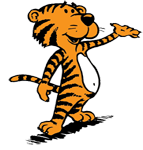4th Grade Newsletter
December 1, 2020
Language Arts
What are we learning?
Readers will determine the main idea in nonfiction text.
- Students will read the heading and subheadings to get ready to learn about their topic.
- Students will read the first sentence and paragraph of a section to determine the main idea.
- Students will determine the details that support the main idea as they read.
Writers will begin to write their own nonfiction articles.
- Students will read nonfiction articles and note what they might try in their own writing.
- Students will develop a list of nonfiction topics that are of interest to themselves.
- Students will narrow a topic of interest to focus on.
Home/School Connection
- Before reading: What did I learn about the topic from the title and subtitle?
- During reading: What is the text mostly talking about?
- During reading: What details support the main idea?
- During reading: What is the same about all these facts or details?
- After reading: How can I retell someone about the article?
- What am I noticing as I read nonfiction articles about the way others present their topics?
- What are some topics that are of interest to me?
- Out of these topics, which is of greatest interest to me?
Math
What are we learning?
- We will learn to do multiplication using area, set, and number line models.
- WE will use our knowledge of patterns to determine multiplication facts.
- Students will examine relationships between numbers and determine patterns in both visual and number sequences.
- We will learn about intersecting lines and the characteristics of 2D shapes*
- *asynchronous on Mondays. FCPS provides a video and a lesson for students to complete independently.
Home/School Connection
- Play with food! Food is a great way to practice multiplication! (example: if I have three piles with 6 peas in each, how many peas altogether?)
- Practice patterns; what comes next in the sequence (0, 5, 10, 15……)
- Count around the table by 2s, 3s, 4s, 5s, etc. How quickly can you reach 50?
- Create 2D shapes using a ruler. How many sides, angles, faces?*
- *asynchronous on Mondays. FCPS provides a video and a lesson for students to complete independently
Science
What are we learning?
- We’ll be looking at weather conditions and how they have a significant impact on ecosystems.
- We’ll be predicting weather events through tracking weather conditions.
Home/School Connection
- Ask what your student thinks the weather will be tomorrow. This week? Why do they predict that?
Social Studies
What are we learning?
We will be beginning our Colonial Virginia Unit!
Throughout this unit we will...
- We will analyze the role of slavery in the growth of the colonial economy and the development in the United States
- We will uncover the dynamic, resilient, adaptive, and diverse nature of American Indian Cultures, African cultures, and European cultures
- We will evaluate the choice to relocate Virginia’s capital from Jamestown to Williamsburg
- We will explore the choices people can make when creating a system of exchange good and services
- We will form relevant questions about the lives of Africans, Native peoples, and Europeans in colonial Virginia
Home/School Connection
- How do the history and cultures of colonial Virginia influence the lives of Virginians today?
- How do people’s values shape the design of their economies?
- Why do some people leave their homes, and how do they impact their new homes?
- What influences how I act, think, celebrate, and make rules?
- What are the characteristics of culture?
Positivity Project
- Students show kindness when they are generous to others! We will discuss how doing good deeds and helping others shows kindness.
- Talk about it! Ask your student to share what they can do to help you or someone else in their day. This dialogue helps us brainstorm ways to show kindness and help spread positivity!
Online Learning Tip
- Learners of any age thrive on structure. By setting expectations and creating a visual schedule for students to follow, they can keep track of what’s happening each day.
- Routines are so important for student success. Set a routine as if students are going to school (get dressed, brush teeth, etc.) to help students learn!




